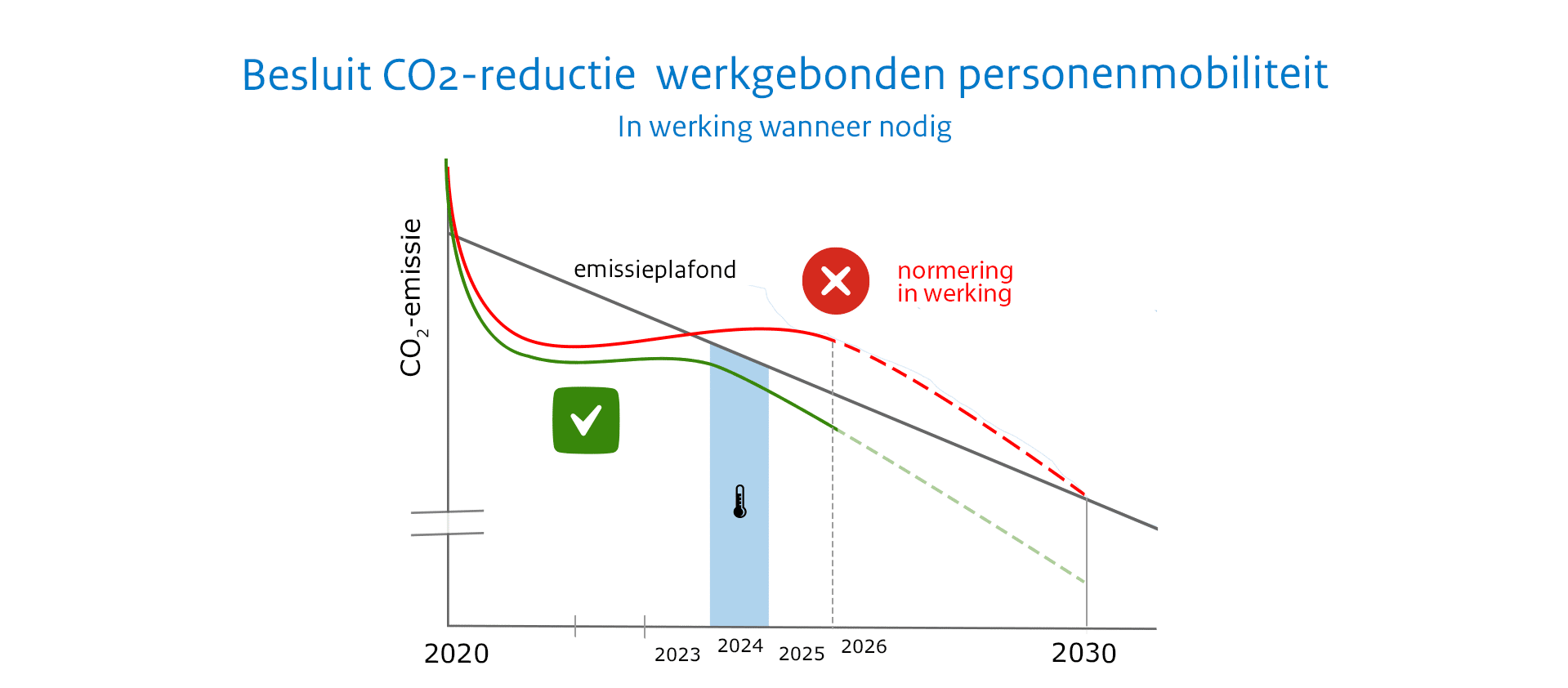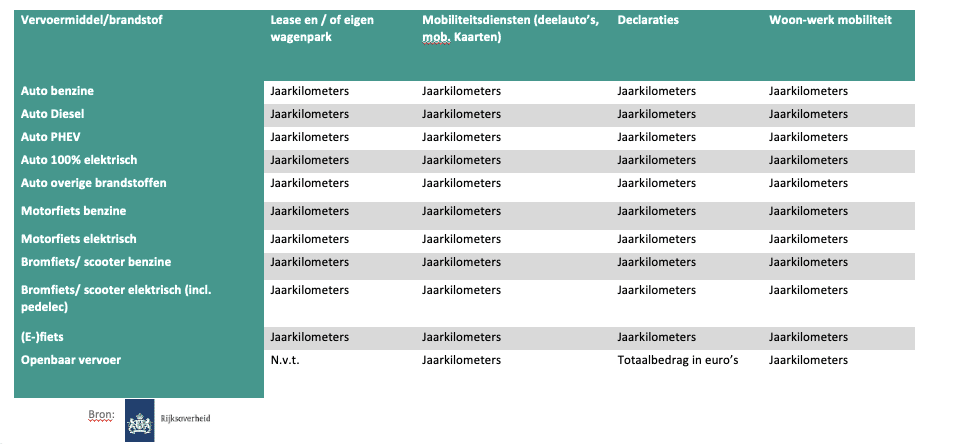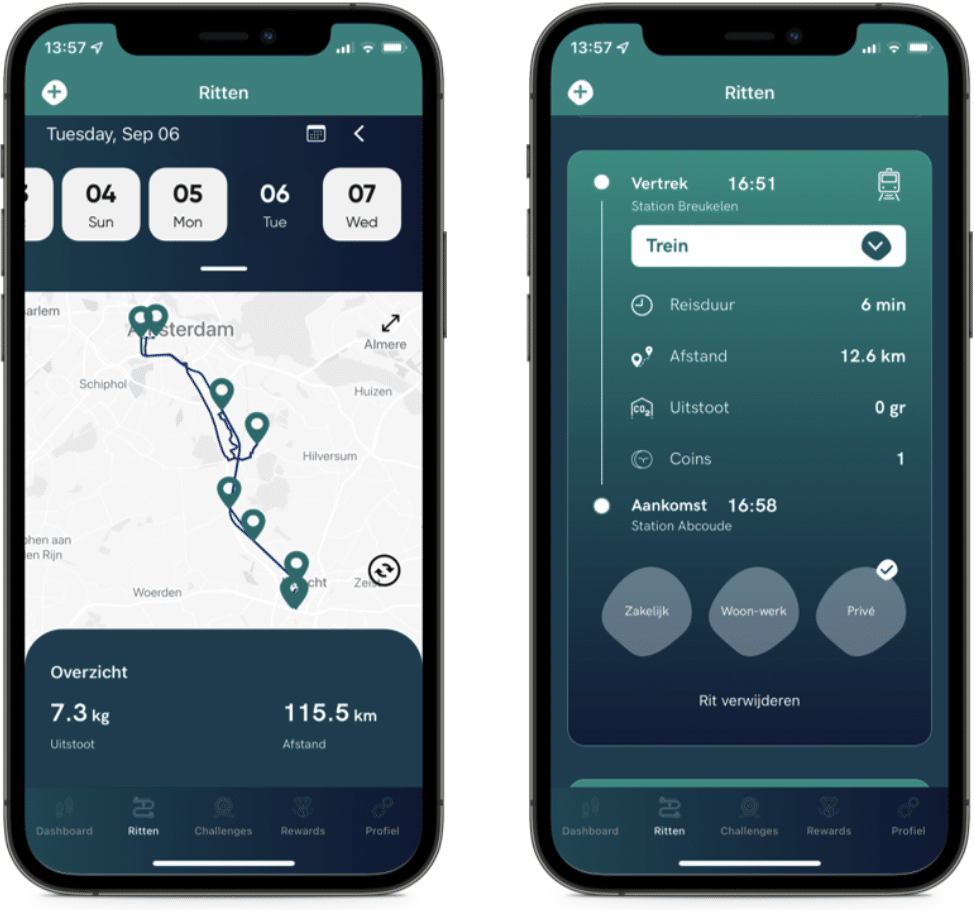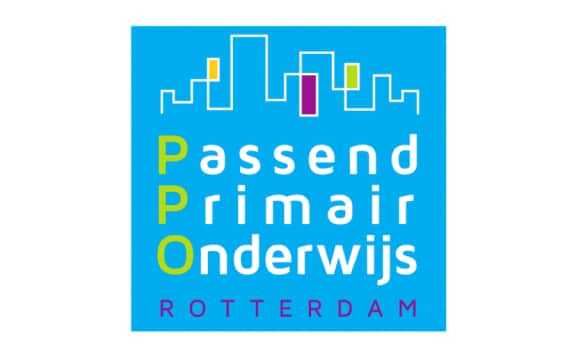
Climate Agreement
The Climate Agreement is a package of measures and agreements between companies, civil society organizations and governments to collectively reduce greenhouse gas emissions in the Netherlands by about half by 2030 (compared to 1990).
Many new laws and regulations have resulted from the Climate Agreement. This has an impact on business in the Netherlands, especially in the areas of business mobility and CO2 reduction. On this page, we explain how your organization can be ready for the new legislation such as the Reporting Requirement Work-related Personal Mobility.

The Environment Act
The Environment Act received the green light from the Senate on March 14, 2023, and may enter into force on July 1st, 2024.
The law should make it easier for citizens and businesses to apply for permits for new homes, roads and bicycle paths and other spatial planning projects. To this end, the law combines and better aligns all kinds of existing laws, including those on the environment, water and nature.
Source: NOS

Decision Work-related Personal Mobility CO2 Reduction
The Normative Regulation on Work-Related Personal Mobility is part of the Environment Act. Because the mandatory standard will not be introduced for the time being, its name has been changed to the Reporting Requirement Work-related Mobility of Persons.
The goal is to gain insight into the Reporting Requirement into how much CO2 is emitted. On July 1st, 2024, all employers with more than 100 employees will start registering all business travel movements. In 2025 we will see where we stand. If the collective CO2 emissions exceed the interim ceiling, a binding standard will be imposed per employer.

What data should I report?
All kilometers per means of transport/fuel type must be divided into commuting and business. This applies to both private cars and leased cars.
The reporting obligation consists of the annual submission of your own data in a government portal. With Fynch Mobility, we provide 24/7 real-time insight into your own data through our Fynch Impact Monitor.
Make sure you can organize this before July 1st, 2024, we are happy to help you with this.

CO2 reduction app for business mobility
Our mobility app tracks the CO2 emissions of all business mobility of your employees on a daily basis. The Fynch App supports the employee daily in registering and declaring business trips, commuting trips, and work-from-home days. This saves employees a lot of time and aggravation.
Find out more about our app here.
Comply to the Reporting Requirement in 3 steps

Employees are invited to login to the Fynch WPM Survey tool. They create their own profile and add their vehicles / modalities. We support SSO via Google and Microsoft.

The intuitive calendar function makes submitting daily commutes a breeze. Within minutes employees have registered what is needed to comply with the CO2 reporting requirement.

The employer receives insight into CO2 emissions and other mobility KPIs on an aggregated and anonymized level. The reporting meets the requirements of the Reporting Requirement Work-related Mobility of Persons.
CO2 reporting. Fynch makes it easy.
- Standard survey tool
- Various data sources
- Time consuming
- Error prone
- No insight into CO2
- Privacy risk
- User-friendly tool
- One central data source
- Completely outsources
- High data quality
- Insight into travel behavior and CO2 footprint
- Guaranteed privacy and security
We are here to answer all your questions about the Reporting Requirement WPM
The Reporting Requirement WPM is part of the Dutch Climate Agreement concluded in 2019. About 27% of all CO2 emissions are caused by mobility, and more than half of that is accounted for by employers. This regulation aims to achieve 1.5 megaton CO2 reduction by 2030.
- Companies in NL with 100+ employees
- Employee: Minimum 20 hours of paid work (including seasonal)
- Excluded: Temporary workers, volunteers, on-call workers (o-hours)
- Multiple establishments: Sum up
- Reference date employee count: January 1 of the reporting year
- Only yellow license plates, mopeds, motorcycles, public transport, and (e-)bike.
- Only business and commuting kilometers
- Have information provision in order by July 1, 2024
- Submit data for 1 July 2024 – 31 December 2024 by 1 July 2025 at the latest
- Thereafter, always report before 1 July of the following year via the website portal of RVO
- 2026 Benchmark joint emission ceiling. This may be followed by a standard in CO2 emissions per km.
In short, for each mode of transport/fuel type, all kilometers divided into commuting and business kilometers must be provided. This applies to both private cars and lease cars.
Make sure you know before July 1, 2024 whether this is possible, we are happy to help you with this.
Client cases

...ultimately found that Fynch offered the most options to meet the needs of our diverse workforce, from mechanics to managers.
View this case




